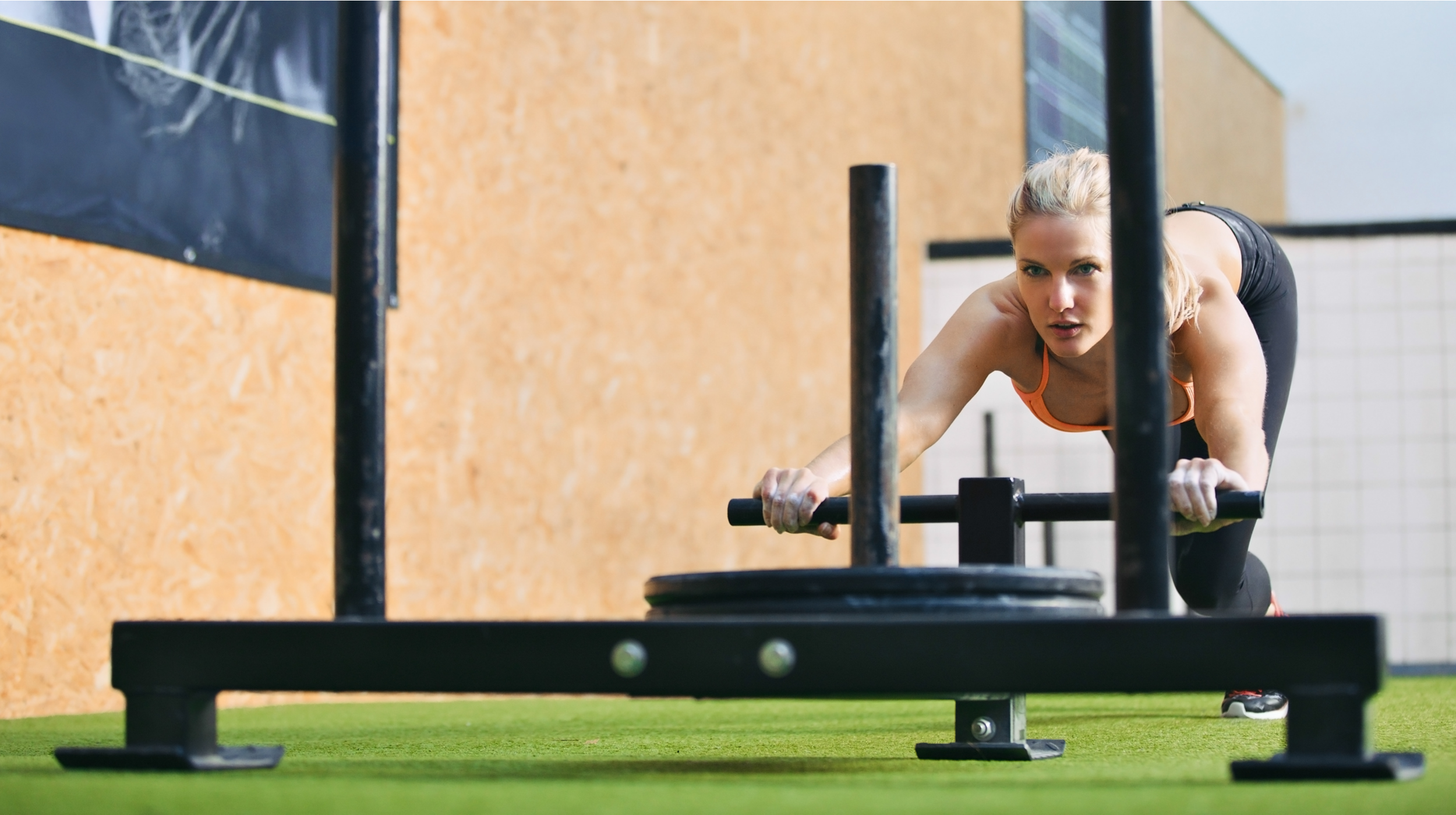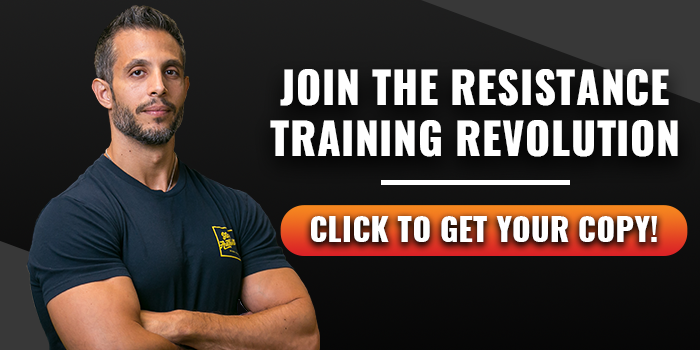A lot of individuals involved in sports look for ways to incorporate resistance training into their workouts, but aren’t sure of how much they are supposed to do. There is also a lot of back and forth on how much is enough, or if certain athletes need resistance training at all.
For today’s article I’d like to go over what resistance training looks like for athletes looking to increase their strength. If you haven’t already, be sure to check out Sal’s book The Resistance Training Revolution where he goes into more detail on this topic.
Be Sport Specific
The first thing to address is that any type of training you do, if you are an athlete, needs to be geared around your sport. There’s not much of a rationale for bicep curls if you are a soccer player. When I interned as a strength coach at UCLA the head coach used to tell us when programming “you can make whatever program you want, as long as you can defend why you have each exercise there in relation to their sport”.
Being a good athlete is all about transfer of power. You need to be able to generate a lot of power from the ground and direct it towards your leg (soccer), arms (boxing, baseball, football), core (golf), etc. If there are any “leaks” in the chain you will not be getting the most out of your potential. For instance, if you are a golfer, and you are able to generate a ton of energy on the backswing of your drive, but as you follow through you do not have the ability to keep your core tight on the twisting motion, you simply won’t drive the ball as far. Therefore, it would be best for you to tighten up with core work.
Sprinters, or basketball players on the other hand need to be able to express a ton of explosion really quickly. So doing hang cleans, deadlifts, and squats can help create lots of strength in their legs while also teaching them to be explosive with that heavier weight.
The best thing you can do is sit down, and figure out what areas of the body need to be strong and in sync with your sport, and figure out what exercises help strengthen those areas.
Mobility
Mobility should be done everyday for any sport. The other thing I learned as a strength coach at the collegiate level was the REAL reason athletes come see you everyday isn’t to get stronger. It’s to prevent injury. That blew my mind but it was so true. You are teaching athletes to be able to handle progressively external loads, through full ranges of motion so that the surrounding musculature and ligaments can properly transfer that newfound power.
Think about when a football player tears their ACL. It happens because they made a cut on a route which changed their direction with so much force their knee couldn’t handle the poundage of that turn. This is why making sure your programming reflects exercises that address the weaknesses of that particular sport.
Focus on ALL Planes of Motion
With that said, a program should be focused not just on the sagittal plane. Usually bodybuilders and recreational lifters only work in the front to back plane of movement (think lunges). How often do you work on side lunges, rotational movements with weight, or changes in direction? This is a recipe for disaster because if you are ONLY getting strong working in one direction, you risk higher injury for all the other angles you aren’t equally addressing.
Off Season Vs In Season
You also need to keep in mind where in your competitive season you are. If it is the off season you may be able to focus 3 days a week towards building up a higher volume of strength. If you are in the middle of your season, having games weekly, then the sessions need to come down to one session or less, because all focus needs to be placed on practicing and performing for the sport itself.
Programming
Max Strength - An athlete needs to build their max strength through the biggest compound movements that translate to their sport. This can be squats, deadlifts, and overhead press depending on the sport.
Reactivity - They need exercises that work on their proprioception and ability to move through different planes. This can be agility work, lunges from all planes of movement, and rotational work. This can also be the daily mobility work to fix any limiting range of motion they can’t achieve yet.
Power - Exercises that focus on generating explosive movements that can help them on the field or court. This can be hang cleans, kettlebell work, med ball work, etc.
Stamina - Athletes need proper conditioning to keep their heart rate elevated and be able to handle tougher workloads. This can be conditioning drills, speed drills, using the sled, etc.
Resistance training overall can be a GREAT tool for all athletes. It comes down to a matter of knowing their sport, and using training as a TOOL (not the focus) to help build up their skills specific to what they need. Adding fluff volume may only increase their injury risk, so as my coach said, make sure you have a DAMN good reason to include an exercise in their program. Their career is on the line.






